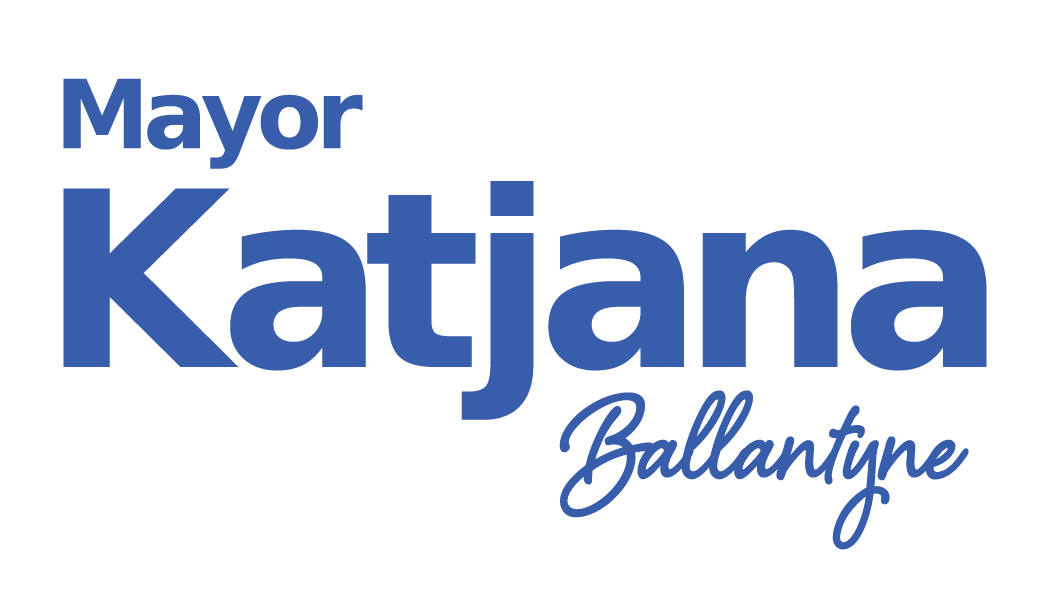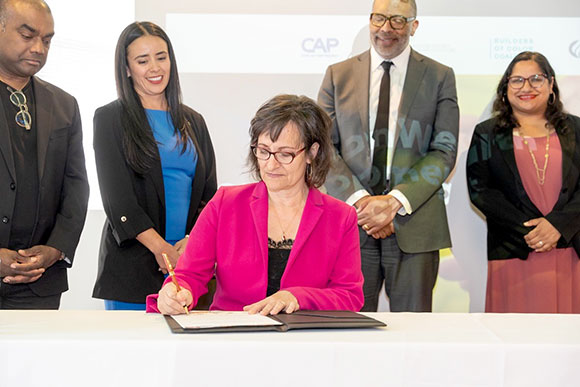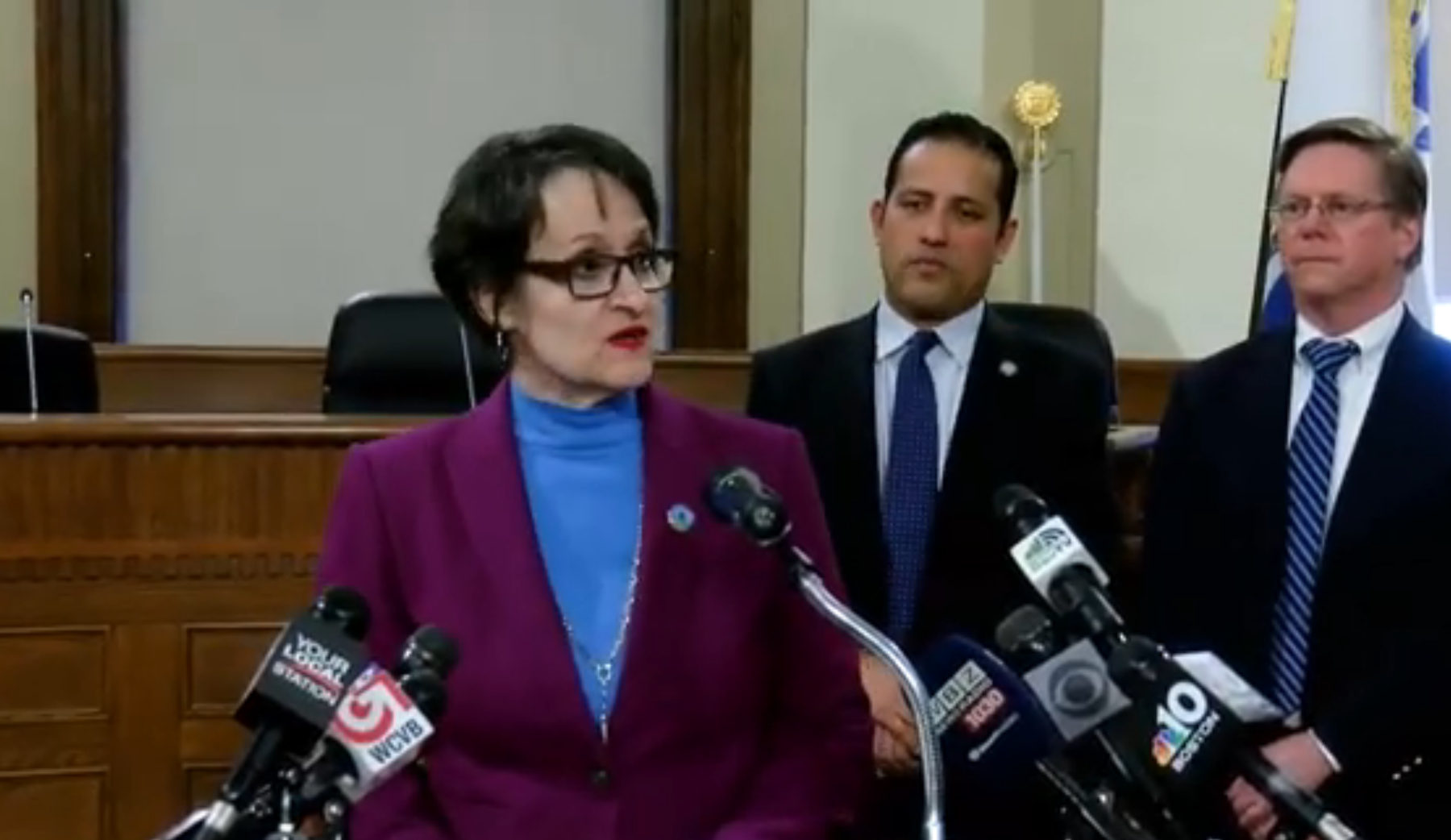Massachusetts must remake its public transit
As cities like Somerville show, high-quality public transportation can be transformative.
By Katjana Ballantyne
It has been a soul-searching year for public transportation in Massachusetts. The recent Federal Transit Administration report, which highlighted myriad problems with the MBTA, was an important wake-up call for the Commonwealth to rebuild a culture of safety, oversight, and accountability in transit operations and maintenance.
But if we want to also look to our future, we must come to see transit as a public good like education. After all, public transit is central to our economic competitiveness, our social progress, and our climate action agenda. It benefits everyone in the region: suburbanites and urban dwellers, employers and employees, riders and those who walk, bike, or drive to work. It’s vital to economic justice, environmental justice, racial justice, and health justice. And once we recognize that public good, we must commit to advancing it.
In Somerville, we have been able to tie the expansion of the Green and Orange lines to urban planning, affordable housing development, environmental guidelines, and economic growth. Through this process we have created a series of “15 minute” communities: neighborhoods that allow you to have access to most of your essential goods, services, and relationships within a 15-minute travel time.
But that goal requires not only high-functioning subway or rail service, but frequent and reliable MBTA bus service. When buses are running on time, most of our residents can get to grocery stores, schools, parks, and cultural and faith destinations with flexibility and confidence. What we are talking about here is mobility equity — being free to travel when and where you need to at a price you can afford. We need this same kind of vision statewide.
We often forget that public transportation is operated and planned each day by human beings. At the beginning of the pandemic, our society did a good job acknowledging the tremendous sacrifices made by our essential workers at the MBTA and the regional transit authorities. But today, chronic underfunding has caught up with us, and labor shortages threaten day-to-day operations as well as long-term planning. A first-in-class public transit system must have an internal focus, investing in the people who work there and instilling civic pride about the value the system has to our economy and communities. The national advocacy organization TransitCenter recently published a report titled “Bus Operators in Crisis,” which identifies livable wages, workplace safety, shift scheduling, and organizational culture as barriers to attracting and retaining workers for public transportation agencies. Here in Massachusetts, the MBTA faces a 20 percent vacancy rate. The incoming Healey-Driscoll administration will need to address the root causes of labor attrition if the state truly hopes to restore public confidence and deliver essential services.
A world-class system must also have robust, affordable, frequent, and clean bus service and an expanded regional electrified rail to help tackle our climate crisis head-on. According to a recent MassINC poll, 73 percent of Massachusetts voters support transforming the MBTA commuter rail system into a “regional rail” network where trains would run at 15-to 30-minute intervals every day, even on nights and weekends.
That would be a substantial change, but we cannot address the climate crisis without getting cars off the road. In our little city of 4 square miles and 80,000 people, roughly 40 percent of our carbon emissions are from motor vehicle trips that start or end in Somerville. Without a world-class public transportation system, shifting passenger trips from automobiles to buses and trains is not realistic.
The Green Line Extension is projected to take roughly 45,000 cars off the road each weekday, but this project took four decades to realize. We need a faster trajectory on electrified regional rail, on linking the Red Line to the Blue Line, and on east-west rail to connect our regions if we are to move the needle on transportation emissions.
Public transportation can also help address the housing affordability crisis in Massachusetts. As mayor of a community with a growing number of employers, I constantly hear that the price of housing, along with congestion, makes metro Boston less attractive compared to peer regions such as Raleigh, N.C., or Austin, Texas. Expanding existing rail lines and bus routes to encompass more communities would allow cities and towns to add affordable housing near new and existing transportation nodes.
What happens if our state doesn’t have a world-class system? We not only risk economic stagnation, we will also fail to meet our climate, health, racial justice, and housing equity goals. In Massachusetts, we have the talent pool to attract new jobs — but we risk our quality of life if we have a failed public transportation system.
First-term Somerville Mayor Katjana Ballantyne, a former city councilor, has spent nine years in elected office championing climate action and social justice including public transit initiatives.





